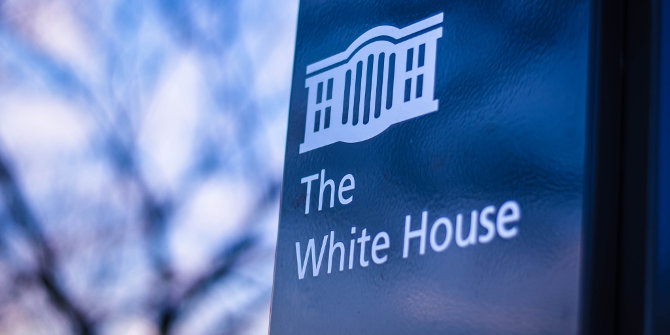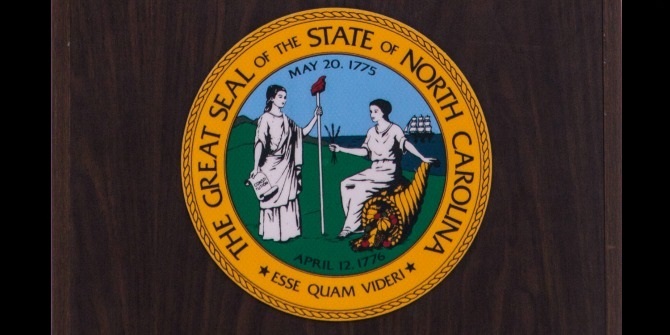 This Thursday, 27 June, Joe Biden and Donald Trump will meet at the CNN Studios in Atlanta for the first of two presidential debates. In this Q&A, Thomas Gift unpacks what to expect from this high stakes tussle, and discusses the broader state of the race less than five months out from Election Day.
This Thursday, 27 June, Joe Biden and Donald Trump will meet at the CNN Studios in Atlanta for the first of two presidential debates. In this Q&A, Thomas Gift unpacks what to expect from this high stakes tussle, and discusses the broader state of the race less than five months out from Election Day.
What role do expectations play in presidential debates?
Managing expectations is everything. Typically, ahead of debates, we see candidates downplaying their own strengths and praising the other side. As an example, in 2004, one of then president George W. Bush’s advisers actually said that his opponent John Kerry was a more skilled debater than the Roman orator Cicero. Trump does seem to recognize that he lowered expectations for Biden too much the last time the pair met on the debate stage in 2020. That’s a mistake he wants to avoid again. But doing requires modesty. And we all know that “Trump” and “modesty” are two words that go together like oil and water. Although Trump recently said that he’s “not underestimating” Biden, downplaying his own skills is such an unnatural impulse for Trump that I’m not sure if he can do it convincingly this late. If all Biden needs to do to exceed expectations is cogently string a couple of sentences together at the debate, that’s certainly advantage Biden.
What do you see as the biggest challenge for Biden heading into this debate?
Biden’s challenge is both stylistic and substantive. In terms of style, we all know that modern presidential debates are all about theatre. Biden needs to show that he can fight back against Trump without getting dragged into the mud. The “mute” button, which only allows one candidate to speak at a time, should help keep the debate (somewhat) civil. But it’s hard to imagine Trump not being his typical bombastic self, and egging Biden into a shouting match. Biden needs to remain presidential. However, that doesn’t mean seeming dull, stiff, or unengaged. Especially given concerns about his age, it strikes me that Biden should err on the side of being too fiery. In terms of substance, expect Biden to focus on three points: first, that democracy is “at stake”; second, that the economy is in “comeback” mode; and third, that Trump is to blame for the recent Dobbs Supreme Court decision, which ruled that the US Constitution does not guarantee the right to an abortion.

“Final Presidential Debate at Belmont Uni” (CC BY-NC-SA 2.0) by Biden For President
What will Trump’s plan be for the debate?
The stakes for Trump seem to me as lower than for Biden. Even if Trump gives a calamitous debate performance, which I doubt, there won’t be calls for him to be replaced. A big question is which Trump will show up on stage. The blustering, headstrong, narcissist itching for all-out war against Biden? Or a more restrained Trump who wants to convince moderates that, even though he’s now a convicted felon, he can be trusted with the nuclear codes again? My guess is that a lot will depend on whether Biden can get under Trump’s skin. Trump may go in with one strategy, and totally flip if his ego gets bruised. To say that Trump should act “presidential” isn’t really a thing in the same way that it is for Biden. The MAGAverse loves Trump precisely because he doesn’t behave like a typical president. For that reason, expect lots of insults, interruptions, and personal attacks by Trump that leave less room for actual policy debates.
Beyond the debate, there’s a lot of speculation that Trump will pick his vice-presidential running mate soon. Any guesses on who he’ll choose?
It’s hard to predict. But my money is still on South Carolina Senator Tim Scott, for a few reasons. Demographically, he balances out the ticket and helps Trump to court Black voters. Scott also has just a comparatively upbeat, positive personality, which counters Trump’s negativity. Scott’s an evangelical Christian, which further appeals to parts of the religious right, a core part of the Republican base. Most importantly, Trump wants someone who’s going to be totally subordinate to him. He wants to say, “Jump” and for his VP to ask, “How high?” Scott’s proven more than capable of that over the last several months of auditioning. All the other top VP candidates have clear downsides. Ohio Senator J.D. Vance once asked whether Trump was “America’s Hitler.” Florida Sen. Marco Rubio called Trump a “con artist.” And North Dakota Governor Doug Burgum doesn’t add anything clear to the ticket, such as coming from a large swing state.
You mentioned Scott’s appeal with Black voters. Is this a demographic that Trump has the potential to make inroads with?
If you’re a Democrat, it’s hard to slice the numbers, and not be concerned about Black voters peeling away from Biden. It’s ironic that no other modern president has been more frequently accused of trafficking in racism than Trump. And yet, he’s on pace to win more votes from Black Americans than any Republican presidential candidate ever. It’s even more striking because the only reason that Biden was the Democratic nominee in 2020 was because he did so well with Black voters in the South Carolina primaries. Not only that, but his Vice President Kamala Harris is the first woman of color to hold that position. Even if Black voters ultimately do revert to Biden, his campaign will still need to spend resources shoring up a demographic that’s consistently voted Democrat for decades. That has an opportunity-cost. It’s less time and less money that Biden can devote to outreach toward other swing voters. Make no mistake. This is a real electoral problem for Biden.
- Please read our comments policy before commenting.
- Note: This article gives the views of the author, and not the position of USAPP – American Politics and Policy, nor the London School of Economics.
- Shortened URL for this post: https://wp.me/p3I2YF-e1y






